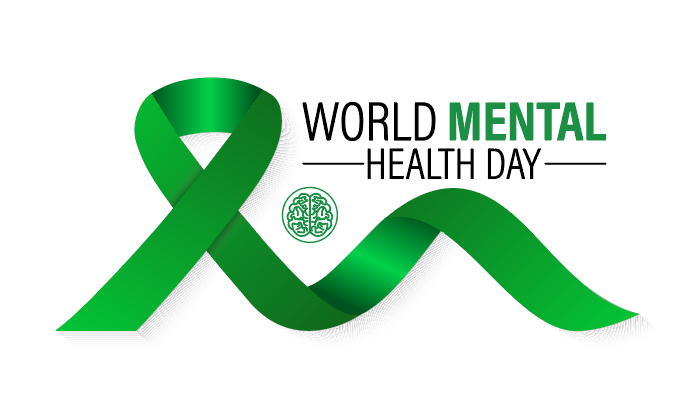Early Childhood Educators and Mental Health: Addressing Burnout and Finding Help
October 10th, 2024 | 3 min. read
By Emily Garman

Teaching ranks among the most stressful professions in the United States, according to numerous studies and reports. The American Federation of Teachers' 2017 Educator Quality of Work Life Survey revealed that 61% of teachers reported frequent or constant stress on the job—over twice the rate of non-teaching professionals. Additionally, 58% of teachers indicated that their mental health suffered due to these stress levels. And that was prior to the COVID-19 pandemic. Since then, issues from school safety to overcrowding continue to take a toll on teachers’ mental health.
Early childhood educators face unique mental health challenges, often resulting from high demands, low pay, and limited respect for their profession. These factors combine to affect child care workers’ and teachers’ well-being, with high rates of stress, burnout, and other mental health concerns being common in the field. Leaders can support their staff by advocating for their needs.
In Building On Whole Leadership by Michael Abel, PhD, Jill Bella, EdD, Teri Talan, EdD, JD, Marie Masterson, PhD, the authors offer an example of a leader advocating for their teaching staff: “The low wages paid to staff are the result of a failed market-based approach to financing early care and education. …[T]he compensation of the early care and education workforce has not kept up with this new knowledge, increased responsibilities, and professional expectations. Parents can’t afford to pay. Teachers can’t afford to stay. There has to be a better way. We have to do something about compensation for the good of the children and families, as well as for the workforce.”
According to research from the Happy Teacher Project (Kwon, Horm, and Amirault, 2021), early childhood educators frequently report feeling underappreciated, overworked, and unsupported. In fact, educators in this field often experience burnout at higher rates than professionals in other sectors. Teachers say that factors contributing to this include low wages, difficult work conditions, and a lack of resources to manage classroom challenges effectively.
Beyond the stressful work environment, early childhood educators often face secondary traumatic stress, especially when working with children who have experienced trauma themselves. This can lead to compassion fatigue, as educators constantly deal with the emotional burden of helping children navigate these challenging experiences (Kwon, Horm, and Amirault, 2021).
Helping Them Heal: How Teachers Can Support Young Children Who Experience Stress and Trauma by Karen Peterson, Ph.D. discusses ways caregivers can support children dealing with the effects of trauma, while also taking care of themselves. In her book, How Can I Help: A Teacher’s Guide to Early Childhood Behavioral Health, Ginger Welch, Ph.D. has an entire chapter focused on coping and self-care for teachers and early childhood caregivers.
In Find the Joyful Leader Within: Banishing Burnout in Early Childhood Education by by Teresa A. Byington, PhD shares, Educators face many demands on their time and energy. You start the day determined to live your purpose, but by nine o'clock, unexpected issues and too many demands have derailed your plans. When overwhelmed, it's hard to get through the day. Lightening your load is an essential leadership task. The key is not doing more, but focusing on what has the greatest impact. If you're overburdened with nonessential tasks or holding onto worries, these burdens will only grow heavier over time.
Research shows that caring and effective leadership, along with access and support to pursue professional development, has a strong positive effect on early childhood educators’ mental health (Stein, et al., 2024). Some Gryphon House books that focus on leadership and development include:
- Inspiring Professional Growth: Empowering Strategies to Lead, Motivate, and Engage Early Childhood Teachers by Susan MacDonald
- Building on Whole Leadership: Energizing and Strengthening Your Early Childhood Program by Michael Abel, PhD, Jill Bella, EdD, Teri Talan, EdD, JD, Marie Masterson, PhD
- Find the Joyful Leader Within: Banishing Burnout in Early Childhood Education by Teresa A. Byington, PhD
Other resources are available for early childhood educators to seek support. The National Alliance on Mental Illness HelpLine offers resources and support to people experiencing mental health struggles. The HelpLine can be reached Monday through Friday, 10 a.m. – 10 p.m., ET at 1-800-950-NAMI (6264) or helpline@nami.org. The National Suicide Prevention Lifeline is available toll-free, 24/7, to anyone in suicidal crisis or emotional distress at 1-800-273-8255. For those in education, groups like the American Federation of Teachers offer resources for managing stress and burnout. Online platforms such as the The Resilience Project, out of Australia, offer community support and self-care resources tailored specifically to the needs of educators.
Promoting mental health and well-being in the workplace is essential for retaining and supporting early childhood educators. Improvements can include advocating for better pay and benefits, creating more supportive work environments, and providing access to mental health resources and training. By addressing these systemic issues, we can help create a more sustainable and supportive environment for the dedicated professionals who play such a vital role in young children's lives.
To early childhood educators: the work is hard, but you are not alone. Ask for help when you need it, and don’t be afraid to reach out when you are in need of support. You’ll get some relief and be setting a good example for your students! We at Gryphon House are so grateful for the work you do every day, and that you keep showing up.
Emily Garman (she/they) works in the Gryphon House Books marketing department. She is passionate about environmental education and getting kids outside. When she's not writing or shooting video, you'll probably find her volunteering somewhere or singing in her community choir.